Category: Education Partnerships
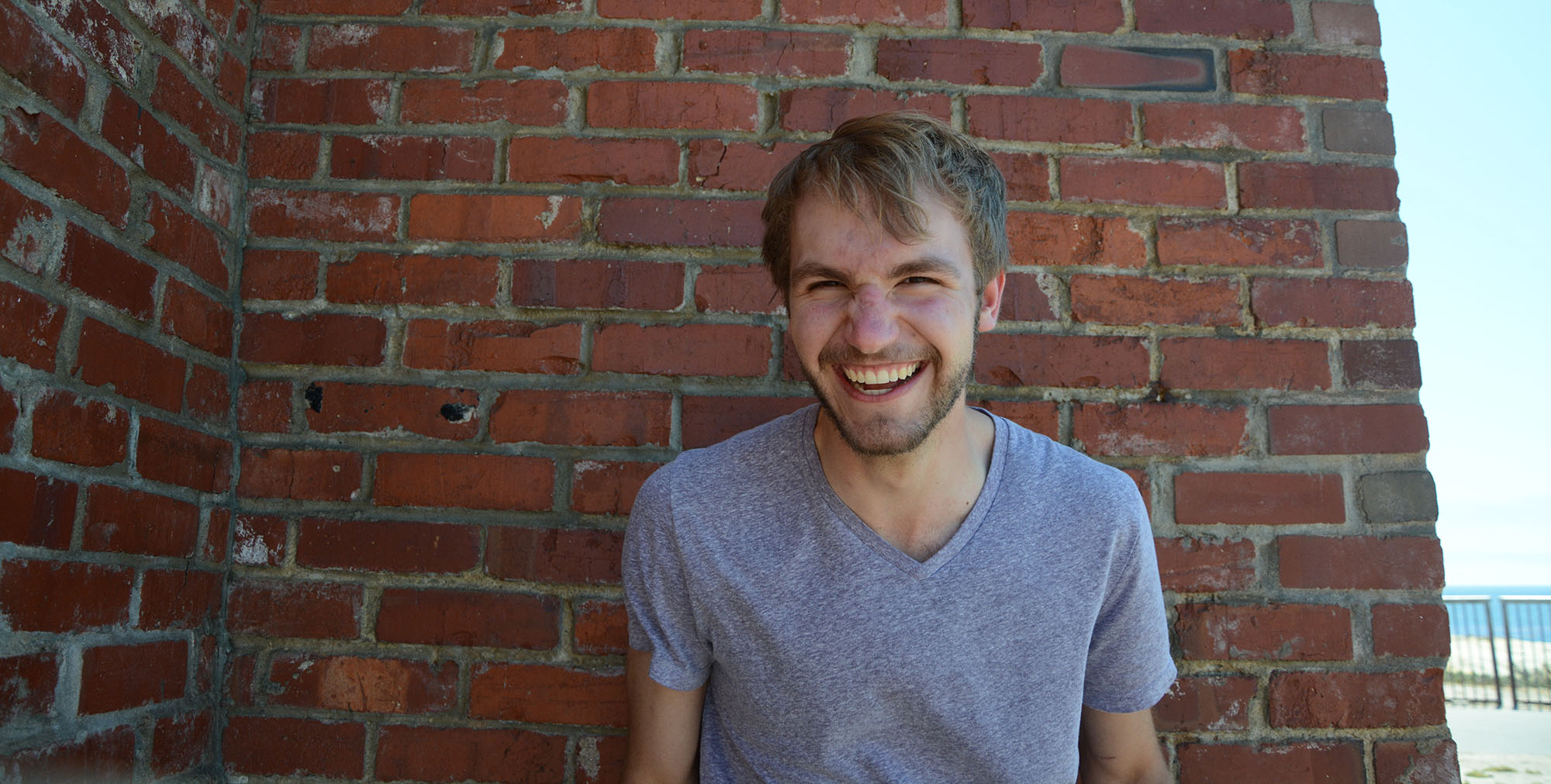
My Most Important Lesson
By Thomas Allen Wehner, ’20, MS ’21
When I first started as a tutor with the High School Support Initiative (HSSI) freshman year, I didn’t realize the depth of the program and how much it would mean to me. I signed up after getting an email about the program because I liked tutoring and it sounded like a good cause. I joined HSSI as a tutor going out to my school site once a week. I was barely aware of the complexities of the program, the intricacies of ethical service, and the depth of how my identities interacted with the complex histories and systems at play in the education system. I had a lot to learn.
At the end of freshman year, I became an HSSI fellow and spent the next three years working with and learning from the incredible team. As a fellow, I was part of the program staff, with expanded responsibilities to support the tutors and program. As a team, we worked with Stanford students, analyzed feedback, hosted workshops, discussed articles and program changes, filled in spreadsheets, tracked attendance, and went out every week to maintain our anchor in the most important work by tutoring high school students.
This experience sparked my interest in education, organizational behavior, and nonprofit work. I had joined HSSI because of its focus on working with high school youth, but working as an HSSI fellow helped me discover that I was even more interested in learning how to develop the organization and volunteers to better serve and collaborate with youth and community partners. This insight helped guide my future plans, highlighted what talents I have to use in collaboration with others to build a better world, and revealed what skills I still need to develop.
Every experience with HSSI pushed me forward as a person – whether building facilitation skills with volunteers, learning the power and shortcomings of the Principles of Ethical and Effective Service, or better understanding how to be an ally as a person of privilege in the fight for educational equity.
The time I spent with the HSSI team added so many dimensions to my Stanford experience, and I consider it to be the most important part of my education here. Beyond fostering a set of technical skills, this experience helped me learn about myself and understand my journey to being a better friend, ally, coworker, volunteer, leader, and person. I am forever grateful to Sophia Kim, our wonderful program director and mentor, and the rest of the HSSI family for this incredible experience.

Originally from Highland Park, IL, Thomas Allen Wehner, ’20, MS ’21, studies electrical engineering at Stanford. In addition to serving with the High School Support Initiative (HSSI) for all four years of his undergraduate career, he has been involved in the campus theater scene, most recently as the executive producer of Ram’s Head.
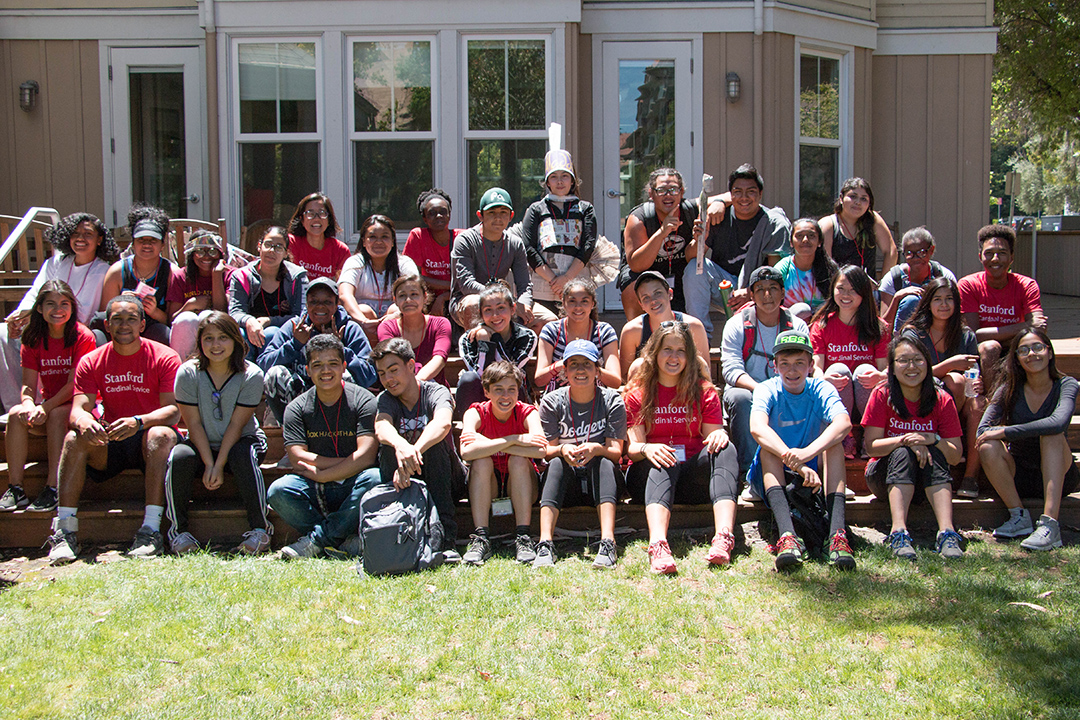
Summer Saturdays at Stanford
By Sophia Kim, program director for the High School Support Initiative at the Haas Center for Public Service
 The High School Support Initiative ran Summer Saturdays at Stanford, a new summer program for youth from the high schools that we are partnered with: Gunn, Menlo-Atherton, and Sequoia high schools. The youth served in the program are from marginalized communities locally and were identified by our partners to apply for the program. All together 27 youth participated with the support of 10 Stanford student volunteers. It was a wonderful four Saturdays of workshops on such topics as resume building and college preparation along with field trips kayaking in the Bay, to SF State, and to Huddart Park in Woodside.
The High School Support Initiative ran Summer Saturdays at Stanford, a new summer program for youth from the high schools that we are partnered with: Gunn, Menlo-Atherton, and Sequoia high schools. The youth served in the program are from marginalized communities locally and were identified by our partners to apply for the program. All together 27 youth participated with the support of 10 Stanford student volunteers. It was a wonderful four Saturdays of workshops on such topics as resume building and college preparation along with field trips kayaking in the Bay, to SF State, and to Huddart Park in Woodside.
Participants had positive feedback about the program, saying they learned a lot and valued getting to work with the Stanford students. We are planning follow up sessions during the school year to bring the youth and volunteers back together in more activities.
 Here are a few quotes from youth participants:
Here are a few quotes from youth participants:
- I really enjoyed this program, every single minute of it. This went by really fast but it definitely made this my favorite summer.
- I wanted to say this was an amazing opportunity to get to know the Stanford students! You guys are the best, you guys are truly amazing! Best wishes to the volunteers.
- I really appreciate what you guys did for us, paying for our food and providing us with your time. Thank you so much! I learned a lot!
- It was really good because it taught us a lot.
And a few quotes from Stanford student volunteers:
- I love doing volunteer work with children, outside of simply tutoring (which is important too!) Between this program and Kesem, I’ve found two great communities full of love and adventure, and have had one of the best summers.
- I didn’t realize how impactful a 4 weekend program could be. It was good that we were reasonable with how much could be done, but I also learned not to underestimate the importance of exposure to topics in college access. On the last day, I was surprised with how much the students took away from the program, especially during their mini open-mic speeches.
- I would wake up each Saturday dreading the early morning only to fall in love with the day.
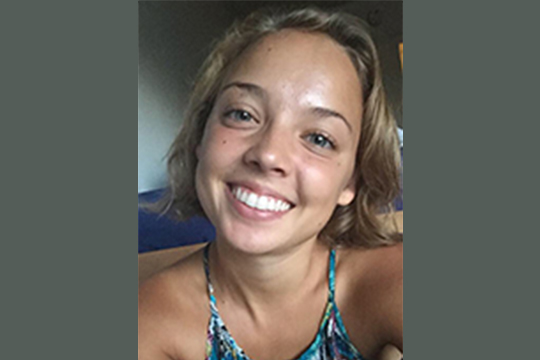
From Sequoia to Spain
By Celina Jackson, ’17 (Comparative Studies in Race and Ethnicity)
After fifth period comes to a close, I sit down with Mr. Rosario to debrief his English Support class — I volunteer there, at Sequoia High School, through the Haas Center’s High School Support Initiative. During the one hour and forty minute period I typically work with individual students, discussing their literary analyses of Richard Wright’s Black Boy and helping them pick apart the meanings of certain passages. I follow Mr. Rosario’s lead in encouraging students to find parallels between the life of the narrator – a black boy in the early 20th century south – and their own lives as mostly low-income Latinx students in the Bay Area in 2017. On the scenic drive back to Stanford along Alameda de las Pulgas, my carpool buddy and I chat about how difficult teaching is, our burning frustrations with the education system, and the inspiring moments when we connect with students or witness them realizing, “I get it.”
Over the past quarter, Mr. Rosario and his ninth graders have made my Tuesday afternoons joyful, challenging, and always energizing. The experience has been deeply rewarding for me on both a personal and a career level – I will be joining the teaching field next year on a Fulbright grant in Spain! – and I am extremely grateful for the opportunity to participate.
Celina is a student leader for the Haas Center’s High School Support Initiative, a program that allows students to work with underserved youth at local high schools.
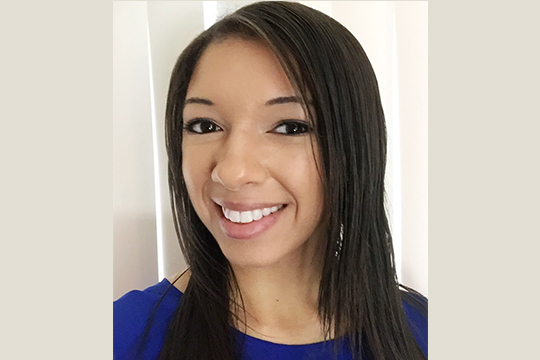
Finding the “why”
By Charlene Chambliss, ’17 (Psychology)
As soon as I mentioned that I was a Psychology major, Maria began excitedly peppering me with questions about the cultural psychology of South Korea, a culture she had come to be fascinated with through her love of K-pop and other Korean music. Time flew as I explained what I knew about how cultural norms develop differently in different societies, and I enthusiastically introduced her to many of my favorite methods for exploring a new subject online and by getting cheap used books through Amazon. When time came for me to go back to campus, I didn’t want to leave—helping empower Maria to feed her curiosity had easily been the most fulfilling thing I’d done all week.
I noticed that many of the students I worked with at Sequoia High School seemed to be “going through the motions” of their classes, following the path that they’ve been put on without a strong sense of purpose. At their age, I had often felt the same way—I had been taught to do well because it would pay off later. These students do want help with their homework, but what they really want is a reason to get excited about learning, a reason beyond “college and a good job” that speaks to their hopes and dreams for the future, and what kind of person they want to become. These youth are impressive—independent, resourceful, and willing to work hard. They’ve got a handle on the “how.” Now, all they need is their “why.”
Charlene is a student leader for the Haas Center’s High School Support Initiative, a program that allows students to work with underserved youth at local high schools.
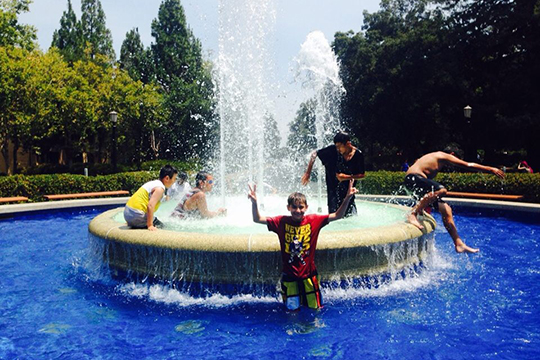
“Shine as if the whole universe is yours”
By Priscila Garcia, Program Director, East Palo Alto Stanford Academy (EPASA), Haas Center for Public Service
During the summer, eight Education and Youth Development Fellowship recipients worked with East Palo Alto Stanford Academy (EPASA) to create engaging, interactive, and thoughtful programming for forty Ravenswood City School District middle school youth. The five-week program included English and Language Arts (ELA), math, and various elective courses. This year’s theme was GalaxEPASA; using Rumi’s quote, “Shine as if the whole universe is yours,” program staff facilitated activities that prompted reflection on the role of the individual within the community. Additionally, every Friday, EPASA went on field trips in the surrounding community—a student favorite was visiting Hidden Villa Farm in Los Altos, where they had the opportunity to make and eat ice cream.
